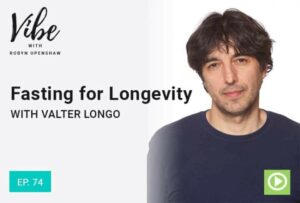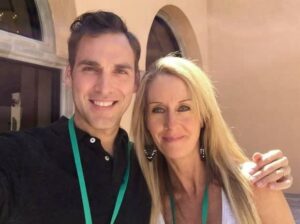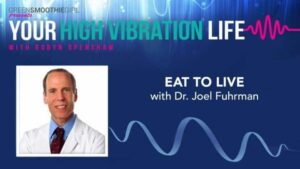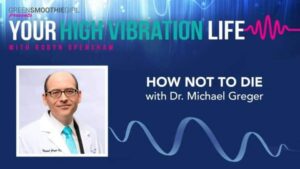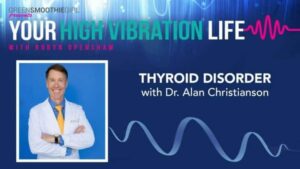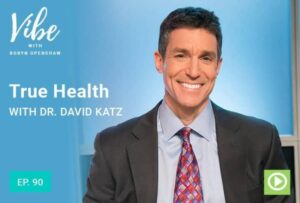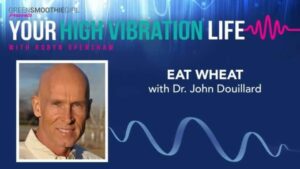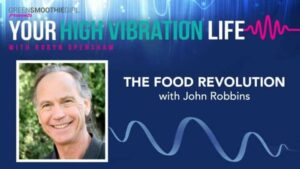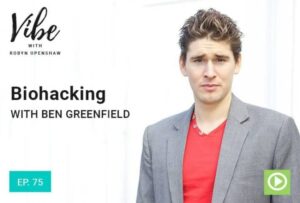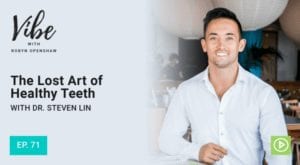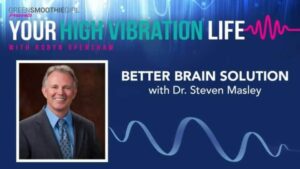22 Experts Debunk Ketogenic, Paleo, & Low-Carb Diets
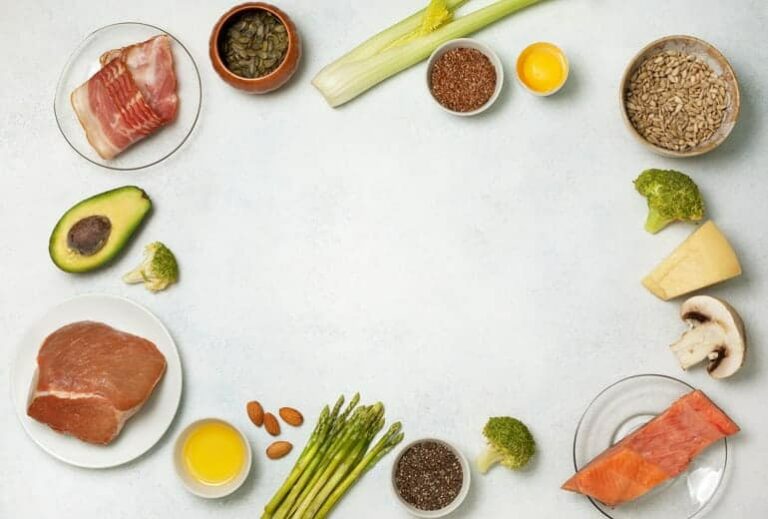
Have you been considering the Paleo or Ketogenic diet fads? First, read this post.
I’ve been watching the Ketogenic and Paleo diets with concern.
The body of longitudinal evidence, with over 10,000 published studies, clearly concludes that Americans eat too little fiber and nutrients found in whole-food plant foods and too many animal products and processed food.1 In contrast, virtually all of the longest-living and most disease-proof people eat a 90 to 100% plant-based, whole foods diet.2
It’s true that elimination diets like Keto, Paleo, Atkins, South Beach, and even the Potato Diet “work” for weight loss – since they’re really just cleverly disguised calorie-restriction plans. When you eliminate entire classes of macro-nutrients (proteins, fats, and carbs) or classes of foods, you’re going to lose weight. However, that doesn’t mean you’ll decrease your disease risk, and some of these diets actually increase it.
Why would you eat a diet that’s bad for your long-term health when you could adopt a diet that is sustainable for the rest of your life and that leads you to your ideal weight but also minimizes your disease risk?
“Ketogenic diet” was the most searched term on the internet in 2017, so I felt it was important to find some consensus. Below, I’ve shared excerpts from many podcast episodes I’ve done with some of the most well known names in nutrition. These are M.D.s, N.M.D.s, and Ph.D.s, along with fitness pros and authors, all of whom are highly regarded in the field of health and wellness. I asked each of them what they think of "Keto," and they shared the evidence and their opinions on high-fat and high-protein diets – along with related issues like whether legumes and grains are good for you or whether carbohydrates are to be feared.
As you consider which diet trends are worth your time and which aren’t, these shocking statements about Paleo and Keto can shed some light. You’ll hear from the world’s mostly highly credentialed and qualified nutrition experts and author-researchers, including:
- Yale’s David Katz, M.D.
- John Robbins
- Joel Fuhrman, M.D.
- Alan Christianson, N.M.D.
- John Douillard, D.C.
- Valter Longo, Ph.D.
- Chris Wark
- Ari Whitten and Wade Smith, M.D.
- Ben Greenfield
- Michael Greger, M.D.
- Stephen Lin, D.M.D.
- Joel Kahn, M.D.
- Derek Henry
- Terry Tillaart, Ph.D.
- Harry Massey
- Stephen Masley, M.D.,
- Caldwell Esselstyn, M.D.
- John McDougall, M.D.
- Eric Zielinski, D.C.
- The Biggest Loser’s Bob Harper
After reading these quotes, check out the Reference section to explore some very readable literature reviews about why virtually everything that is known about nutrition is violated by the “Keto” diet. Each book that’s linked features an extensive bibliography of the published studies on diet, all of which point to a highly plant-based diet being best. Cumulatively, these studies number in the thousands, and the results are very consistent in the face of ever-changing diet fads that usually favor the foods – like animal products – that Americans want to eat.
Now, without further ado, I share thoughts from 22 quotes nutrition experts I’ve interviewed about the “Ketogenic Diet.”
Note: Some quotes have been edited for length and clarity.
Valter Longo, PhD
Valter Longo, PhD is the Edna Jones Professor in Gerontology and Professor in Biological Science as well as the Director of the USC Longevity Institute. He also is the founder of a non-profit organization promoting scientific and medical projects in low-cost, integrative therapies for the prevention and treatment of major diseases and the author of the international bestseller The Longevity Diet, which features the 5-day “fasting mimicking diet” and reviews evidence of its success in disease prevention and weight loss.
From my podcast interview with Dr. Longo, Episode 74:
This [plant-based Longevity Diet] works using multiple pillars of science and medicine.
- One of the pillars of evidence is epidemiology studies. Is a high animal fat, animal protein diet and low sugar diet successful in large populations? For example: A study by Harvard showed a very clear increase overall in mortality, including an increase in cardiovascular mortality and an increase in mortality from cancer. Epidemiology studies a large population, [which is] very important.3
- Another “pillar” of evidence I consider is clinical studies. What if you take a group and you feed it high animal protein, high fat, and you take another group and you feed it a control diet? How do they do? You’ll see that those who eat a high protein diet will have a high level of IGF-1, a risk factor for cancer and aging. It’s a very important pillar.
- The third pillar is basic research focused on longevity. What about mice and other organisms that have been tested? What if they’re fed a high protein diet versus a low protein diet? Do they do better? Not surprisingly, if they’re fed a low protein diet, they live longer and healthier.
- The fourth pillar is populations around the world that have record longevity. You could do some studies and, by mistake and coincidence, get a lot of opinions based on a short study – and maybe multiple pillars will support it. Then, if you look at the Okinawans, the people in Loma Linda (CA), Sardinia, Calabria, Icaria, Greece – the ones that have regular longevity – and you ask, “Did they have a high protein diet?” none of them do.
Everything in these four pillars of evidence now is supporting a low protein, mostly vegan –maybe some fish – diet.
Excerpts from Dr. Longo’s book: The Longevity Diet. 2018.4
- Consumption of high levels of animal (but not plant-based) proteins was associated with increased mortality from cardiovascular disease.
- A low-carb, high-animal protein diet is associated with a twofold increase in diabetes, a finding also consistent with our discovery in the six-thousand-person protein study.
- Mice on a high-protein, low-carbohydrate diet lived the shortest and had the worst health, despite the effect of the diet on weight loss.
- Simply by lowering protein intake in mice, we can reduce the incidence of melanoma and breast cancer. Even after tumors were established, their rate of growth slowed in the presence of reduced protein intake.
Chris Wark
Chris Wark is an author, speaker and health coach. He was diagnosed with Stage 3 colon cancer at the age of 26, and after surgery, he refused chemotherapy and chose nutrition and natural therapies to heal himself. He now inspires people to take control of their health and reverse disease with a radical transformation of their diet and lifestyle, and his book, Chris Beat Cancer, is available on Amazon.
From my podcast interview with Chris, Episode 38:
The Paleo Diet is an American fad. It is not rooted in science; it’s rooted in hype and a mythology that our caveman ancestors ate a diet that was mostly meat, and maybe some root vegetables, leafy greens, nuts, and seeds.
The principles – eating clean, grass-fed, organically-raised, pasture-raised type meat and wild-caught, wild-killed meat – is a better quality of animal product than your commercially raised beef, and chicken, and pork. Many Paleo advocates also advocate for eating whole foods and not processed food. That’s great advice. I totally agree. But they’re very down on fruit and starchy vegetables, because there’s this idea that’s been propagated and regurgitated that our paleolithic caveman ancestors didn’t eat that stuff.
The reality is different if you actually look at the science. There’s a fantastic spread in Scientific American where they investigate the real paleolithic diet. The authors of Paleo Diet books are not actual scientists. When the actual leading paleontologists around the world investigate the remains – the bodies – that have been pulled out of the Earth from prehistoric man and paleolithic peoples, guess what they find in their teeth? They find starchy plant matter in their teeth and digestive tracts, so we know they ate lots of starchy vegetables, and they ate very little animal products.
We have this movement, and the Paleo Diet – you could actually just call it the Meat Lover’s Diet. That’s what it is. It’s branded as this healthy, cutting-edge thing, but it’s really just a diet for people that love to eat meat and want to justify it as the latest, greatest, healthy way to be like our ancestors. They weren’t eating bacon and butter, and they definitely weren’t drinking coffee. Every Paleo [and Keto] person I know eats tons of bacon and butter and drinks a lot of coffee. They drink a lot of coffee because their protein-heavy diet is such an energy depleting diet that they need coffee just to have normal energy levels throughout the day.
It’s highly thermogenic, which is why it actually burns calories and why you lose weight eating a high protein diet. Your body actually has to use more energy to break this stuff down to convert it into energy. Protein is converted into glucose in your liver. It makes you feel sluggish and tired all the time when you eat tons of protein.
Even if we didn’t have research on paleolithic man and didn’t know what kind of foods they were eating, we have many, many studies from around the world on the healthiest, longest living people on Earth. These are people that researchers and scientists have been able to actually go and live with, study, track their disease rates, and take their blood.
We know that the healthiest, longest living people with the lowest rates of disease eat a diet that’s 95% plant based, on average, and they eat tons of starchy vegetables. In fact, their main source of calories comes from starches like rice, beans, corn, potatoes, grains, and fruit. They eat very little meat and dairy – less than 5% of their diet. That can equate to eating meat a few times a week or a few times a month, and in some cases, a few times a year.
The Ketogenic Diet is in a whole class of its own. It’s an experimental diet that is very high fat, a moderate amount of protein, and very, very low in carbs. This diet will cause you to lose weight, but there’s no population anywhere in the world that lives “in ketosis.”
Ketosis is a survival mechanism triggered in the body when you go without food. Your body burns fat for energy, so it burns stored fat, converts it to ketones, which your body can use as fuel instead of glucose, and it burns those and keeps you alive. It’s a wonderful, brilliant, intelligently designed, backup survival mode that your body kicks into when you’re trying to survive.
There’s a segment of the scientific and fad-diet community that has taken this idea of ketosis, which Atkins really popularized, and really taken it farther than he ever did. They’re encouraging people to stay in ketosis, to eat this high-fat diet for the rest of their life, essentially – that it’s healthy – but there’s no precedent anywhere in the world. No population, not even the Eskimos who eat a lot of fat, were in ketosis.
A lot of people have made claims that it’s the best diet for cancer patients, and there’s virtually no evidence of that, either. It’s all theoretical, hypothetical speculation that, because cancer cells feed on glucose, if you convert to a diet that has no glucose in it, you’ll get better.
I’m not a fan of the Paleo Diet or the Ketogenic Diet. I look around the world at the healthy populations with low rates of cancer, heart disease, and diabetes, and that’s the diet we want to imitate. Instead of experimenting with something that’s never been proven, why don’t we just imitate what’s working for people?
Quote from Chris Wark from the Keto & Paleo Manifesto
The ketogenic diet is like fasting, only with none of the health benefits.
Dr. Joel Fuhrman, M.D.
Joel Fuhrman, M.D. is a six-time New York Times bestselling author and internationally recognized expert on nutrition and natural healing who specializes in preventing and reversing disease through nutritional methods. His books include Eat to Live, The End of Heart Disease, The End of Diabetes, and Disease-Proof Your Child. He is currently the president of the Nutritional Research Foundation.
From my podcast with Dr. Fuhrman, Episode 37:
There’s always going to be those people coming up with their own independent ideas and hypotheses to make themselves stand out in some different way to appeal to the masses with some fad or gimmick or trick. That’s never going to hold. There was the “eat for your body type” diet. That was just made-up nonsense and eventually lost favor. The Atkins Diet lost favor for a while because there were so many long-term studies showing how dangerous it was to eat so much animal products, with the evidence being hard endpoints like death and cancer rates. Now we have a resurgence of that way of thinking.
After a while it comes back, but this idea that lectins and beans and phytates in nuts and seeds and vegetables are somewhat anti-nutritious or life-span shortening is another gimmick that doesn’t have any scientific validity to it. First of all, the idea that lectins and beans were bad and have anti-nutrients stemmed from the Paleo movement, because they were advocating meat-heavy diets. They didn’t think that primitive people ate beans.
It’s okay to have a hypothesis. I have nothing wrong with people taking a guess on what they think might work and have a reason why they are coming to that idea. Then you have to say, “Where’s the evidence for that? What if we test it?” What if you test it, not just short term, but what if we put people on beans, lots of beans, long term for 20 years or more? What if we take beans away and give them more meat, long term, for years? We have to give more credence to studies that follow thousands of people for 20 years or more and less credence to ideas that follow people for a year or two.
We look at large studies over many years, looking at hard endpoints, and we see two things:
- More beans leads to longer life. If you look at the nurses’ health study and other studies like that that follow women over many years, we see always that the women who eat the most beans have the lowest rates of breast cancer and the highest longevity, the longest life span.
- A study published of 129,000 people that went on for more than 20 years showed that those people who ate more animal products had a 43% increased risk of death.3
Every long-term study with large numbers of people show increased death rate with higher consumption of animal product, animal protein, and lower death rate, lower cancer rate, and longer life with higher consumption of beans and of course with vegetables that are so-called “high in phytates,” and the same thing with nuts and seeds.
The lectins and the phytates that supposedly bind nutrients actually have anti-cancer effects in themselves. They bind mercury, lead, and toxic metals as well. They prevent excess nutrients like copper and iron from passing through the body. If you’re going to eat meat, eating beans with it mitigates some of the damage from the excess iron in meat that can cause damage to the body. Eating more beans makes the meat less toxic.
Quotes from Dr. Joel Fuhrman from The Keto/Paleo Manifesto:
There are many variations of the ketogenic diet, and some are more dangerous than others. One thing known without question is that the long-term safety of these diets is unknown, because studies would have to follow thousands of people for decades into their 70s and 80s to truly ascertain the true risks.
What we do know with certainty from such long-term studies is that as the proportion of products from animal products increase in the diet, so does the death rate from cancer and heart disease. In other words, the quality and long-term safety of a diet can be determined by the ratio of ‘produce’ calories to ‘animal product’ calories. We also know that diets richer in antioxidants and phytochemicals – and with a broad variety of such anti-cancer immune-supporting substances – are critical to prevent later-life cancers.
The ketogenic diet generally uses high amounts of oils, which do not contain significant micronutrient content as a source of calories, thus diluting the micronutrient density of the diet.
It is not the diet best designed to push the envelope of human longevity, though a ketogenic diet, if well designed, may not be as dangerous as the highly processed-food SAD diet, which contains dangerous ingredients such as white flour, sugar, fried foods, soda and junk food.
Dr. Michael Greger, M.D.
Michael Greger, M.D. is a physician, international speaker, and New York Times bestselling author of the book How Not to Die. His non-profit NutritionFacts.org is a science-based, non-commercial website that provides daily videos and articles on the latest discoveries in nutrition.
From my podcast interview with Dr. Greger, Episode 36:
They’re all like zombie diets. They’re unkillable. They come back. Atkins was first published in the early ’70s and then fell out of favor – until they return it from the dead, and then it’s the new Atkins diet. Now we’re on the new-new-new Atkins diet, [the Ketogenic Diet].
Basically, people love hearing good news about their bad habits. Telling people to eat bacon and butter sells a lot of magazines and books, but it sells the public short. It’s a classic tobacco-industry tactic: selling confusion, muddying the waters in the hopes that people just throw up their hands and eat whatever’s put in front of them.
The public needs and deserves to know about the overwhelming global consensus regarding the core elements of healthy living. The reality is there’s a remarkable consistency in the nutrition science literature that we should boost our intake of healthy plant foods like fruits and vegetables, and limit our intake of animal foods and processed foods. The farthest from that would be something like an Atkins or low-carb diet. A Mediterranean diet, very vegetable-centric, is closer to what an ideal diet might look like.
If you actually survey people that claim they’re eating “Paleo,” the biggest thing that differentiates their diet from the standard American diet is actually vegetable consumption. They claim to eat significantly more vegetables. If your definition of Paleo is “eat lots more vegetables,” fantastic. Unfortunately, many people just use “Paleo” to go out and eat garbage.
There are all sorts of ways you can measure healthy eating. Harvard has one, you can measure concordance with the federal dietary guidelines. My favorite dietary quality index is just, “What percent of your diet is whole plant foods?” In the United States, about 55% of our diet is processed junk and about 40% is animal protein. That takes it down to about less than 10% whole plant foods, fruits and vegetables, beans, whole grains, legumes – that kind of thing.
There’s been a number of studies that have actually looked at that index and looked at breast cancer survival, for example, or diabetes.5 Basically, the greater percentage in your diet of whole plant foods, the healthier you are, the lower your risk of chronic disease.
Dr. Alan Christianson, N.M.D.
Alan Christianson, N.M.D. is a New York Times bestselling author and physician who specializes in natural endocrinology. He founded the Endocrinology Association of Naturopathic Physicians and formulated several supplements designed to reset and establish hormonal balance. He also is the author of several books, including The Metabolism Reset Diet, The Adrenal Reset Diet, and Integrative Health.
From my podcast interview with Dr. Christianson, Episode 50:
You talked nutrition fads. Sadly, that’s so much of the patterns in nutrition. It’s no more logical than the trends in fashion. It’s like, “What did we do last year? Well, that didn’t work. We need to go further the opposite way.” Now, we’re in this phase of going extreme low carb and focusing on high and high animal-food diets. The evidence has never flip-flopped back or forth or changed that radically, but trends and habits really have. There’s strong data about the importance and the benefit of having plant foods in the diet. Vegetables, fruits, legumes, intact whole grains. These things are so well-documented.
The tough part is that we’re all so very subject to placebos, to hoping something will work and maybe feeling the benefits from it. The other thing that can help is that so many people’s diets are so processed that any change they make [skews the conclusion]. They could change 10 parts of their diet and maybe three or four of those changes were really helpful, and maybe two or three were indifferent, and a few might have even been harmful – but they may have come out better because of the few good things they did do.
Quote from Dr. Christianson from a previous blog post:
The ketogenic diet is a legitimate tool for helping reduce seizures among epileptic children who did not respond to medication. We may learn more in the coming years about benefits to other conditions, but most think of it as an easy path to weight loss. The underlying assumption people make is that the ketogenic diet makes them better at burning fat. Sadly, it does the exact opposite, and the confusion comes about from using the phrase ‘burning fat’ in two different contexts.
- Using fat for fuel is called beta-oxidation.
- Breaking down body fat is called lipolysis.
Ketosis is the state in which your liver cannot burn fat for fuel. It can burn fat for fuel only when carbohydrate and protein are also present. A ketogenic diet only leads to lipolysis when it contains fewer calories than is needed. This is true of any diet. When a ketogenic diet has more calories than is needed, the extra dietary fat that is initially converted to ketones gets turned into triglycerides and stored as body fat. In a controlled human study comparing a ketogenic diet against a high carb, high-sugar diet with the same number of calories, the high-carb diet led to more fat loss than the ketogenic diet.
Besides the lack of efficacy for weight loss, the ketogenic diet has risks to consider for those seeking to improve their health. The evidence supporting the benefits of dietary fiber, vitamins, and minerals, is undeniable. The ketogenic diet is devoid of fiber, and low in vitamins and minerals. People on ketogenic diets often experience:
- fatigue
- diarrhea
- muscle cramps
- headaches
- hypothyroidism
- impaired athletic performance
We may find more medical applications of the ketogenic diet and more ways to mitigate some of the inherent risks and deficiencies it creates. However, ketones are not the ‘preferred’ source of fuel for the human body, nor are they effective hacks for weight loss.
Bob Harper
Bob Harper is well-known as the host and personal trainer on the television series, The Biggest Loser. His life changed dramatically following a massive heart attack on February 12, 2017. He’s now intent on spreading the lessons he learned regarding diet and, particularly, carbohydrates. His many books include The Skinny Rules, Jumpstart to Skinny, Skinny Habits, Skinny Meals, and Are You Ready.
Excerpts from Bob Harper's The Super Carb Diet, 2017:16
Without the right number of carbs, a by-product will enter the body. This by-product is known as ketones. When your body creates ketones, you run the risk of ketosis. I like to think of ketosis as the body’s way of telling you something ain’t right.
Now, you may have heard of a diet that is quite literally called the Ketogenic Diet. It’s for people who want their body to enter ketosis. However, it comes at the price of the loss of good complex carbohydrates and a whole lot of other negatives. Urine sticks are even involved. Unless I’m pregnant, I don’t want to be peeing on a stick.
Ever talk to someone on the ketogenic diet? You can tell right away because their breath is often bad. One type of ketone that is produced is called acetone. Acetone comes out in the breath (and urine), and it smells rotten. I’m talking dragon-breath bad.
I want us to use what the body was MEANT to use for fuel, and that includes carbohydrates and the right mix of nutrients.
Ari Whitten and Wade Smith, M.D.
Ari Whitten and Wade Smith, M.D. are the authors of The Low Carb Myth, a book that reveals the truth about low-carb diets and what is driving the obesity and diabetic epidemics. Wade Smith, M.D., is an Orthopedic Trauma Surgeon at the Swedish Medical Center in Englewood, Colorado, and a Professor of Orthopedic Surgery at the University of Colorado, School of Medicine. Ari Whitten is a fat loss and metabolism specialist with a B.S. from SDSU in Exercise Science and two advanced certifications from the National Academy of Sports Medicine.
Excerpts from Ari Whitten and Wade Smith’s book The Low Carb Myth, 2015:6
The Carbohydrate Theory of Obesity [an attempt to blame fat gain on carbohydrates and sugars] is based on numerous scientific inaccuracies, omissions of data, and countless instances of data cherry-picking.
The notion of everyone eating diets of essentially nothing but fat and protein with only a tiny amount of carbohydrate as a widespread initiative to combat obesity is laughable, since any dietary pattern so extreme as to jettison an entire macronutrient (and simultaneously limit another one) is simply unsustainable for the majority of people.
Joel Kahn, M.D.
Joel Kahn, M.D. is one of the world’s top holistic cardiologists who believes that plant-based nutrition is the most powerful source of preventative medicine on earth. He lectures throughout the country on the health benefits of a plant-based anti-aging diet. His books include Your Whole Heart Solution and The Plant-Based Solution.
Quote from Joel Kahn in The Keto/Paleo Manifesto:
While ketogenic diets prompt the production of ketone bodies as fuel and are of proven value in rare cases of refractory epilepsy, they are also associated with data in several studies suggesting they boost long term risk of premature death. I would not advise the daily use of a long term ketogenic strategy based on animal product consumption.7
Caldwell Esselstyn, M.D.
Caldwell Esselstyn, M.D. directs the cardiovascular prevention and reversal program at The Cleveland Clinic. His many publications include the book Prevent and Reverse Heart Disease, based on his benchmark research on reversing coronary artery disease in the seriously ill – one of the longest longitudinal studies of its type.
From my podcast interview with Dr. Esselstyn, Episode 104:
If you look over the scientific literature, there has only been one diet that has ever halted, arrested, and reversed patients who are seriously ill with cardiovascular disease – and that is whole foods, plant-based nutrition.
I am unaware of a single study of the Ketogenic diet in a peer reviewed process where they have taken patients who were seriously ill with demonstrable cardiovascular disease and have been able to show the halting and the reversal of that disease.
Harry Massey, Filmmaker
Harry Massey is a writer, director, and bioenergetic expert. He directed the full-length documentary film Choice Point and wrote the book by the same name. His mission is to inspire people to transform themselves and to develop paradigm-changing technology such as the NES Health. He is the executive producer and co-writer of the documentary The Living Matrix: A New Science of Healing.
Quote from Harry Massey from the Keto/Paleo Manifesto:
I went on the ketogenic diet, I felt like crap, and three months later I was diabetic.
David Katz, M.D.
David Katz, M.D. is founding director of Yale University’s Yale-Griffin Prevention Research Center, past president of the American College of Lifestyle Medicine, and current president of the True Health Initiative. He is recognized globally for his expertise in nutrition, weight management, and the prevention of chronic disease and was named one of the nation’s top nutrition experts for 2017-2018 by DietSpotlight.com.
From my podcast interview with Dr. Katz, Episode 90:
The public really needs to finally clue in to the idea that confusion about diet is enormously profitable for a lot of industries and individuals and to reject this nonsense once and for all.
If all of the major epidemiologic studies show that the healthiest, longest-lived populations around the world routinely eat whole grains, then why are we debating whether or not whole grains are good for us? It’s a waste of time. Yes, there are people who are gluten intolerant. They need to avoid gluten, but the question, “Are whole grains good for people?” – it’s answered. And the idea that it’s possible to publish a book arguing that food containing lectins needs to be avoided – even though all of the most nutritious foods contain lectins – it’s preposterous. People who eat those things consistently have the best health outcomes.
Again and again, across every population, every kind of study, no matter which way we aggregate the evidence, it’s perfectly clear that people do best when they eat diets of minimally processed foods, mostly plants, lots of vegetables, fruits, whole grains, beans, lentils, nuts, seeds, and plain water for thirst. Any argument that is at odds with that incredibly well-established foundation, is an attempt to sell you something. Period. End of story.
The replacement of the weight of evidence regarding human health outcomes with these isolated tidbits about nutrition is a case of failure to see the forest for the trees, time and time again. As long as we are willing to be suckers, to be gullible and silly, and to pretend like the fundamentals of nutrition actually change every time a new book comes out, authors and publishers will be willing to keep selling us bad advice. It’s time for us to stand up for good sense. We want good science, but we have to filter it through good sense.
Everybody knows that get rich-quick-schemes are silly. Sensible, responsible adults don’t get involved in get-rich-quick schemes. People get an education, and they work hard. We need to grow up and start treating health the way most of us treat wealth – as something that serious people take seriously. The basic advice about it isn’t going to change every day on The Today Show. We’re in it for the long haul, and we want to take care of it in a way that will protect us across the span of not the next six weeks, but the next six decades. We want to invest in it, and we want to bequeath it to our children and share with our families.
Given the profit incentive, as long as we’re willing to buy nonsense about fad diets, there will be people willing to sell it to us. The result is we have squandered literal decades going around the same circles by different names. Go back to the 1970s when Robert Atkins first published his books about going low-carbohydrate. It came out again in the 1990s, when it really took off. If it was such a terrific idea 20 years ago, where are all the lean, healthy people now? The reality is you can cut fat and eat low-fat junk food and get fatter and sicker. You can cut carbs and eat low-carb junk food, and get fatter and sicker.
I’m very disheartened by the current preoccupation with the ketogenic diet, which is basically just a low-carb diet that’s been popular several times before under a new name. The idea here is to restrict carbohydrates to the point where the body switches over from running on glucose in the blood stream to running on a metabolite of fat called ketone bodies.
What bothers me about this is that, of course, if you remove one of three macronutrient classes from the diet, you will produce weight loss. If you produce weight loss in people who are overweight or obese, there’s a good chance you will improve in the short term their blood pressure, their blood cholesterol, their blood sugar – because weight loss tends to do all of that.
The problem is, leaving aside that it’s nearly impossible for most people to sustain a diet that cuts out one of three major sources of macronutrients, there’s the simple fact that we have no evidence that this dietary pattern is consistent with long-term human health, and every reason to worry that it’s not, since all of the best long-term outcomes occur in people who eat lots of carbohydrate – vegetables, fruits, whole grains, beans, lentils, nuts, and seeds in their native, unprocessed form.
What’s the risk with a ketogenic diet? From my perspective, it’s like using cocaine or a bout of cholera to lose weight. These things will cause you to lose weight in the short term, and will bring down your cholesterol and blood sugar, but that really doesn’t mean they’re good for you. We have every reason to believe this dietary pattern, which is fundamentally at odds with everything we know about long-term human health and vitality, is a really bad idea – and yet because it promises short term weight loss, it is the diet and lifestyle analog to a get-rich-quick scheme.
It’s really important that we stop talking about nutrients and start talking about foods and how we put them together. What we’ve proven abundantly to one another is that we can pick any nutrient we like and still get the diet wrong. In contrast, if you get the foods and dietary pattern right, you inevitably get the nutrients right, because they simply come along for the ride.
Almost any dietary advice that’s focusing on an ingredient, a kind of food, or a nutrient is going to be bad advice right from the start. We’ve focused on one nutrient at a time and proven that there are lots of different ways to eat badly, and we seem committed to exploring them all. That’s really the critical issue, and it’s not just about the ketogenic diet. It’s about whatever fad diet is going to come along next, too. It’s time to stop having an interest in any fad diet.
The places around the world where people live the longest and enjoy the greatest vitality do not change their diets every time a book gets published. They eat the way they’ve eaten for generations. Wholesome foods, sensible combination stands the test of time. It’s about foods and dietary patterns rather than nutrients.
In terms of how dangerous the ketogenic diet is, it seems very likely that it’s dangerous. It’s a diet that emphasizes foods associated with higher risks for every major chronic disease – heart disease, diabetes, stroke, cancer or even dementia. I think it’s likely to be extremely injurious over time, but as a scientist who is careful about what the evidence tells us, I suppose I have to say I don’t know for sure, because I’m not aware of any long term studies of the ketogenic diet.
What I can say is it seems likely to me that it would be harmful, not helpful, over time. It also seems likely to me that few people could stick to it anyway, which means you’ll lose the weight quickly and then gain it back, with interest, which is what most people who go on fad diets do. In contrast, diets of wholesome foods (mostly plants, which are high in carbohydrate) have also been associated with rapid weight loss, reversing type two diabetes, lowering blood pressure and cholesterol, and the ideal outcomes we all really care about: years in life, and life in years.
Again, I don’t have proof from a 20-year long study of the harms of the ketogenic diet because such a study has never been done. Even its fans have to admit they can’t know it’s helpful, because they have no evidence of that. In contrast, those of us advocating for the diet we know to be good for people – wholesome foods, mostly plants, sensible combinations – we’re not making that recommendation based on a leap of faith; we’re making that recommendation based on what really happens to real people in the real world over lifetimes.
Terry Tillaart, PhD
Terry Tillaart, PhD is a national speaker, coach and educator. He graduated in Natural Medicine from Kingdom College of Natural Health certified by Texas Chiropractic College Division of Postgraduate Studies. He offers several programs, including ones regarding cancer, extreme pain resolution, rapid immunity, and weight loss.
Video transcript:
Here is one reason why the ketogenic diet is so wrong: It is low in all of these nutrients, many of which are critical to life and death:
- Potassium
- Sodium
- Folate
- Vitamins C and E
- Magnesium and Calcium (ultimately leads to muscle cramps, constipation, gallbladder and kidney stones, breast tissue calcification, and heel spurs.)
- Iodine
- Fiber (low-fiber diets are linked to almost every disease, including stroke and breast cancer)
- Phytochemicals (50,000 phytochemicals that provide the phytonutrients that protect against disease, and they all come from plant-based foods)
The Ketogenic crowd loves to use the term “nutritional ketosis,” but anyone who is intellectually honest can clearly see this diet is anything but high in nutrition.
While the ketogenic diet does not provide enough of the listed nutrients, it does provide heterocyclic amines and polycyclic aromatic hydrocarbons – chemicals formed by cooking animal flesh. These chemicals are toxic to the blood and include harmane, a neurotoxic compound linked to Parkinson’s, Alzheimer’s and cancer.
If we simply took PhiP, Harmane, and TMAO’s as a short list of amines to examine, we would be furnished with more than ample reasons to be avoiding these foods. In fact, Dr. Kim Williams, M.D. President of the American College of Cardiology, reported that TMAO itself was enough reason to “vigorously avoid consuming animal based foods.”
The Ketogenic diet is also inherently high in Glutamine, Methionine, Phenylalanine, Tyrosine and Asparagine. Researchers remark in multiple studies that cancer has an absolute dependency on and addictions to these amino acids. In fact, a 2015 Oncoscience journal article recently stated that cancer patients may be successfully treated with a protein-free diet, which echoes many other journals studying various amino acid restriction strategies.8
Claims of ancestral diets from the “Paleo” crowd have all been disproven by brave anthropologists. Much like our closest anatomical relatives, the chimpanzees and bonobos, we are clearly designed for a raw food, plant driven, low fat, high-carbohydrate diet.
To ascribe to the tenets of the ketogenic diet is to believe that bacon, lard, and processed oils are literally preferential to apples, bananas, and figs – which is not only absurd, but also wholly unscientific and irrational. Slick marketing from the meat and dairy industry, who are hemorrhaging financially, is the driving force behind the Atkins 2.0 push we see now, which has given rise to authors cashing in on telling people chocolate-covered bacon is healthy.
Derek Henry
Derek Henry, founder of Healing the Body and the THRIVE Online Health Program, used nutrition, natural remedies, and a holistic lifestyle to naturally unravel 13 chronic disease conditions that conventional or alternative medical professionals couldn’t help him resolve.
From a statement he wrote me in email:
Every successful nutritional plan for exceptional health and longevity is rooted in easily digestible, highly hydrating, fiber-rich, antioxidant-loaded, and nutrient-dense foods that are very antibacterial, antiviral, antiparasitic, antifungal, and antimicrobial. The keto diet, unfortunately, fails in each of these areas.
- First of all, favoring animal protein and fats as 80 to 90% of your diet puts excessive pressure on the kidneys, liver, and gallbladder. This excessive protein harms the kidney’s ability to filter the blood of wastes, hampers the liver’s ability to neutralize and eliminate toxins, and overtaxes the gallbladder in its role to efficiently digest fats.
- Secondly, a keto diet is generally devoid of enzymes, prebiotics, probiotics, and fiber due to the massive elimination of fruits, grains, legumes, and most vegetables. Those four key nutrient classes ensure efficiency of the digestive process, including healthy bowel movements, as well as efficient absorption of vitamins and minerals.
- Thirdly, since the body is comprised of up to 75% water, it’s very important to consume a diet that is highly hydrating. With only 5 to 10% of the keto diet including fruits and vegetables (the most hydrating foods), the body is in a constant state of thirst that has to be met with copious amounts of clean, mineral rich water.
- Lastly, staying healthy in today’s world of biological warfare requires a consistent approach to consuming foods that are highly anti-bacterial, anti-parasitic, anti-fungal, anti-viral, and anti-microbial. Some of the richest sources of these immune protective properties are fruits, vegetables, and herbs.
In the last five years of teaching people to overcome a wide variety of chronic health issues and enabling them to sustain it for the long-term, I can confidently state that the keto diet is ill-conceived, with little to no hope for the individual to sustain it in the medium to long term.
This makes it another fad diet with inevitable negative health consequences.
Dr. John McDougall, M.D.
John McDougall, M.D. is a physician and nutrition expert who teaches better health through vegetarian cuisine. He is the founder and director of the nationally renowned 10-day residential McDougall Program. He also is the author of several nationally bestselling books including The McDougall Program, The McDougall Quick and Easy Cookbook, and Digestive Tune-up.
From my podcast interview with Dr. McDougal, Episode 93
All large, successful populations of people throughout all verifiable human history have obtained the bulk of their calories from starch. Remember Aztecs and Mayans – the people of the corn; potatoes for the people of the Incas; rice for the Asians.
They fed individual components of food – carbs, fat, protein – to lab animals and found it was only the fat that made them fat. The fat you eat is the fat you wear, so you avoid [most] fats and oils unless you want to wear them. The body’s going to burn carbohydrates for activity. It’s going to use a tiny little bit of protein to repair and build a few things, but it’s going to save that oil and fat for the day when there’s no food available so you can get through the famine.
If you eat a diet that excludes essentially all carbohydrate, which your body needs for fuel, then you’ll lose weight – because you’ll get sick. What happens with the Ketogenic Diet is the body has to resort to burning fat that you eat and fat in your body fat. It produces the byproduct ketones, and ketones create a state called ketosis, which suppresses your appetite. Initially, you lose weight on these ketogenic diets because they’re also a diuretic. They cause you to lose six, eight, ten pounds of water. Then what happens is you get so sick from being in ketosis you don’t eat, so you lose weight.
As far as grains are concerned, grains are terrible, right? That’s why there are ten billion Asians over the last hundred years who’ve lived on grains. That’s why the Conquerors, the athletes, the workers of Central America, the Mayans and the Aztecs lived on corn. If it’s so terrible, how would they have ever survived? Today there are billions of people on this planet. In Asia, there are about two billion people and about half of them still live on a starch-based diet.
I think that the more unrealistic the dietary program, the faster it becomes popular. People are looking for weird. They’re looking for something that they might’ve missed, the magic secret that’s going to give them the health they deserve. You could find a diet made up of almost anything out there. Ketogenic diets – they’re easy. They have a real low learning curve. You go to the fast food restaurant, you order your meal, you throw away the bun, scrape off the ketchup and pickles, and then you’re on a ketogenic diet.
Dr. Eric Zielinski
Dr. Eric Zielinski (otherwise known as Dr. Z.) has pioneered natural living and Biblical health education since 2003. He is trained as an aromatherapist, public health researcher, and chiropractor. Dr. Z also is the author of the national bestseller The Healing Power of Essential Oils.
From a statement Dr. Zielinski wrote me in email:
Think going keto is harmless? Think again! Studies in children using the ketogenic diet to treat epilepsy and other neurological conditions have uncovered that, even though the frequency of seizures may tend to decrease, it came at a significant cost. These children were significantly more likely to suffer from an increase in kidney stones, osteoporosis, hyperlipidemia, and even impaired growth.9, 10
The ketogenic diet was designed nearly a century ago to help children with epilepsy. Why people think that this lifestyle can be helpful and sustainable for relatively healthy adults in an effort to lose weight is counterintuitive. We really do not know what happens to adults when they adopt a low-carb/high-fat lifestyle for more than 6-12 months, because that’s as long as the clinical trials last that we have on record. We’re desperately in need of longitudinal studies to evaluate the long-term ramifications to what obviously appears to be an aberrant restriction of the God-given fruits, legumes, and whole grains that our ancestors enjoyed.
It is, without question, true that humans thrive on a predominantly plant-based diet. Research has shown us that diets low in phytochemicals (plant-based compounds) will ultimately lead to subpar health. The European Journal of Nutrition put it this way: “Whereas the absence of essential nutrients from the diet results in overt deficiency, often times, with moderate to severe physiological decrements, the absence of [phytochemicals] from the diet results in suboptimal health.”11
This is not to say that people will get sick and die young if they regularly eat meat, though studies have alluded to this as a possibility – with increased risk of heart disease as one major threat.12 It is to say, however, that research strongly suggests that someone’s chances of enjoying optimal health is greatly diminished if their diet consists mostly of animal fat and protein. Low-carb/high-fat fad diets focus on “essential nutrition” and ignore plant-based phyto-compounds from a wide variety of sources – including fruits, veggies, whole grains and legumes – which are responsible for robust health.
Dieters need to choose. Enjoy “suboptimal health” to shed some quick pounds, or follow a more time-tested approach, rich in plant-based nutrition.
Dr. John Douillard, D.C.
John Douillard, D.C. is a globally recognized leader in the fields of natural health, Ayurveda, and sports medicine. He directs LifeSpa, a holistic wellness center in Boulder, CO, and is the creator of LifeSpa.com, a web-based Ayurvedic health and wellness resource. He also is the bestselling author of seven health books including The 3-Season Diet, Eat Wheat, and Body, Mind and Sport.
From my podcast interview with Dr. Douillard, Episode 46:
The science shows wheat – whole wheat, not refined or processed wheat – lowers the risk of Alzheimer’s by 53% in the Mediterranean diet and 54% in the Mayan diet (which is three servings of whole wheat or whole grains per day) and lowers the risk of type 2 diabetes in study after study after study.13 There was a 30-year study of almost 200,000 people and they found that people who ate the most gluten had the lowest rates of type 2 diabetes, and people who ate the least amount of gluten had the highest.14
Is it okay that we just take a food group that we’ve been eating for three and a half to four million years right out of our diet? There’s science to back that up:
- There was one study that Kamut has twice the amount of gluten as some of the modern strands – but had twice the reduction of inflammation. It actually reduced the risk of diabetes and reduced cholesterol.
- There are studies that show that people eat a gluten-free diet (versus people who don’t) have four times as much mercury in their blood than when they eat wheat.15 They have significantly less good bacteria and more bad bacteria than people who eat wheat.
- In one more study, they found that people eating gluten-free have significantly fewer killer T-cells, a measure of immunity, than people who eat wheat.
- When you eat a whole grain, it lowers the risk of obesity, arthritis, cognitive decline, Alzheimer’s, and type 2 diabetes in study after study, with over 600 references.
Everybody can’t digest grains anymore because their digestion’s been broken down from the processed food diet. Everyone is going to a “Paleo” diet, which is meat three times a day. There’s no person on the planet living in the Paleolithic Era [who] ever ate meat three times a day. It simply didn’t happen. They absolutely did eat grain. They found evidence of gluten in the teeth of ancient humans from four million years ago. A study at the University of Utah showed that the ancient humans, three and a half million years ago, would gather enough wheat berries in two hours to feed them for an entire day.
If you ask any anthropologist what the paleolithic people ate, they will tell you in short order, they ate nothing that is recommended in the Paleo diet. It was much less meat, and it was many more starches. It wasn’t meat three meals a day, guaranteed. They would kill a rabbit and scavenge a little here, a little there. They ate grains, tubers, nuts, and seeds.
John Robbins
John Robbins is an international bestselling author and president of the Food Revolution Network. His many books include Diet for a New America, The Food Revolution, and Healthy at 100. He is an adamant spokesperson for healthy, environmentally sound, sustainable choices and is the recipient of the Rachel Carson Award, the Albert Schweitzer Humanitarian Award, and the Peace Abbey’s Courage of Conscience Award.
From my podcast interview with John, Episode 42:
When we eat plants instead of animals, our health improves. We live longer lives, higher quality lives. There’s a higher frequency in our energy or to our vibration, to our quality of life. Also, our ecological footprint and our carbon footprint are lessened. We are lighter on the earth.
I don’t eat genetically engineered foods. I eat as much organic as I can. I’m veganesque. I feel better eating some wild fish – in particular, salmon – but with that exception, I’m vegan. I eat a lot of plants, vegetables, and fresh fruits. I eat some whole grains, but they are low glycemic ones – quinoa and buckwheat primarily. The only breads I eat are made from organic sprouted grains. I don’t eat flour or added sugar, because there are sugars naturally inherent in all foods.
I buy tons of kale, collards, arugula, broccoli, and mustard greens, and all kinds of dark green leafy vegetables, because I love them. I eat them every day. I have smoothies most mornings where I blend kale leaves or collard leaves and maybe an apple, a carrot, and a cucumber. I also grind flax seeds and chia seeds. I grind them up and put them in the smoothie, along with the fresh veggies, sometimes an apple, and water, and blend it up. Then, throughout the day, I eat salads and steamed veggies.
Ben Greenfield
Ben Greenfield attained his master’s degree in exercise physiology and biomechanics before partnering with physicians and opening a series of personal training studios and gyms. He is the author of 13 books, including the New York Times bestseller Beyond Training. He is the founder and CEO of Kion, a company dedicated to creating and delivering products, information, coaching, and consulting to those wanting to experience the pinnacle of health, performance, and longevity.
From my podcast interview with Ben, Episode 75:
[On his years as a body builder:] I did it all by eating copious amounts of protein. I don’t know how many grams I was at per day, but well above that 200 gram amount – where you begin to get ammonia toxicity and a whole bunch of nitrogenous waste.
I was consuming a lot of protein, but bad protein; what happened to be on sale from the frozen steak section of the grocery store or four to five cans of tuna at night. I was sponsored by ABB Bodybuilding Shakes, which is like Ensure, which is maltodextrin, soy protein isolate, vegetable oil, and a bunch of crap in a can.It was a high protein, low fat, low carb diet that I followed while living in the gym. I was pretty unhealthy. I looked really good but had very low testosterone and a lot of gut issues. That really messed up my gut for a long time.
I don’t think there is a right diet. I think that people need to eat based on what they’re genetically hardwired to eat. There are people who have very high levels of saturated-fat sensitivity and might produce inflammation or extremely high cholesterol or high particle count in response to one of these trendy, high fat, low carb or ketogenic diets.
Dr. Steven Lin
Steven Lin, DMD is a functional dentist and author of the #1 Amazon bestseller The Dental Diet. His practice is based on the belief that food, not drills and needles, is the key to healthy teeth and gums and that orthodontic braces can be prevented with nutrition.
From my podcast interview with Dr. Lin, Episode 71:
I have drawn up a food pyramid in The Dental Diet, and the base of it is plants. That really tells us that, for the vast majority of what we eat, it should be coming from a variety of plants. We’ve actually changed our plant intake. It’s something like seven species we’ve now reduced our intake of vegetables to. [We really need] a variety, and all these different fibers are what create microbial diversity. That’s a huge part of understanding how to create a healthy oral environment, because you have diverse, ecologically stable bacteria that then go on to your gut.
Dr. Steven Masley, M.D.
Stephen Masley, M.D. is author of several bestselling books, including The Better Brain Solution. He created the #1 health program for public television called 30 Days to a Younger Heart. His research focuses on the impact of lifestyle choices on brain function, heart disease, and aging.
From my podcast interview with Dr. Masley, Episode 60:
When someone needs energy and eats a granola bar or cereal or bread, insulin’s the hormone that tells your cells to store that energy. When you eat a refined carb, your sugar levels spike, and you get a message that says, “Push that energy into the cell and store it.” Every time you eat refined carbs, you get this insulin spike. If we do that regularly, your cells start saying, “Hey, I don’t have any more room to store. That cell is full. I can’t store any more. I’m going to stop listening to you. I’m going to be resistant to your storage message.” Whether it’s table sugar, or white flour, or whole wheat flour, they all act the same way in your blood and have that sugar spike effect.
When you reach insulin resistance, that’s when we’re gaining weight around our waistline. At the same time, the brain cells become unable to use energy at all and become dysfunctional. It’d be like if someone put the wrong type of gas in your car. The engine wouldn’t run. When you consume out-of-control carbs and you get this insulin resistance message, your brain cells are unable to use the sugar in your blood or that’s in their cells. Their motor won’t run, and you get brain fog or forgetful or unfocused.
What we want is carbs that don’t cause your blood sugar to jump high. When we eat unprocessed carbs – like an apple or a cup of broccoli – that has a lot of fiber in it, the fiber binds to your sugar so your sugar doesn’t spike. It comes out slowly and gently over time and provides us with a steady flow of energy. Low-glycemic carbs would be blueberries, cherries, watermelon, apples, or any of the vegetables except for a potato. Nuts and beans have a very low glycemic load.
What has a high glycemic load would be anything made with flour, crackers or chips, bread, granola, processed cereal, and obviously sugar itself. Those things wreak havoc on our brain function and our health. It’s an important distinction between eating low glycemic carbs that have lots of nutrients and phytonutrients and those that are empty and sugar-releasing.
Robyn Openshaw
Robyn Openshaw, MSW, is the author of 15 titles and the founder of GreenSmoothieGirl.com. She has spoken in 450 cities in six years, and brings together research and clinical experts on her blog and her popular podcast, Vibe, available on iTunes and Stitcher. Her most recent book, 2017’s Vibe, was a #1 Amazon and USA Today bestseller. Other titles include The Green Smoothies Diet and 12 Steps to Whole Foods, and she has a free video masterclass on how to detox twice a year for optimal health in a toxic world.
My wrap up on ketogenic and paleogenic diets:
From 2009 to 2013, I predicted that the protein-obsessed “Paleo” fad would be replaced by an obsession with fats, and here we are. Enter “keto.” Now I have a new prediction: Keto marketers will start selling isolated-nutrient supplements that people need in their nutrition-starved state – just as Atkins did with his very similar, and equally lousy, animal-products-obsessed diet. As more scientists pointed out the nutritional deficits of the dietary practices he taught, Atkins prescribed and sold people 67 different supplement pills to compensate for his nutrient-deficient, unlimited-burgers-and-cheese diet.
Ketogenic diets will continue to make some marketers rich. However, they will be doing harm to their audience. Far from a cancer cure, they are cancer causing – and will harm your cardiovascular health too. It’s a ridiculous fad. It’s not for smart people. It’s for sheeple.
If you lost weight on “keto” and are emotionally committed to it, you aren’t the first, but thousands of studies prove that high animal-fat diets are a terrible idea. If you follow the program, most of the calories of the ketogenic diet, is 60 to 80% animal fats and protein. That’s massively higher amounts of animal products than every good nutrition study has shown to be disease preventative. No wonder that in January 2018, U.S. News and World Report ranked it as tied for dead last in their review of 40 diets. You can lose weight in many ways. Why do it in a way that massively increases your disease risk?
Craving more? My podcast, Vibe, on iTunes and Stitcher, has some fascinating interviews with some of the greatest clinicians and researchers alive today. Check it out!

Disclosure: This post may contain affiliate links that help support the GSG mission without costing you extra. I recommend only companies and products that I use myself.
Posted in: Healthy Weight, Lifestyle, Whole Food


